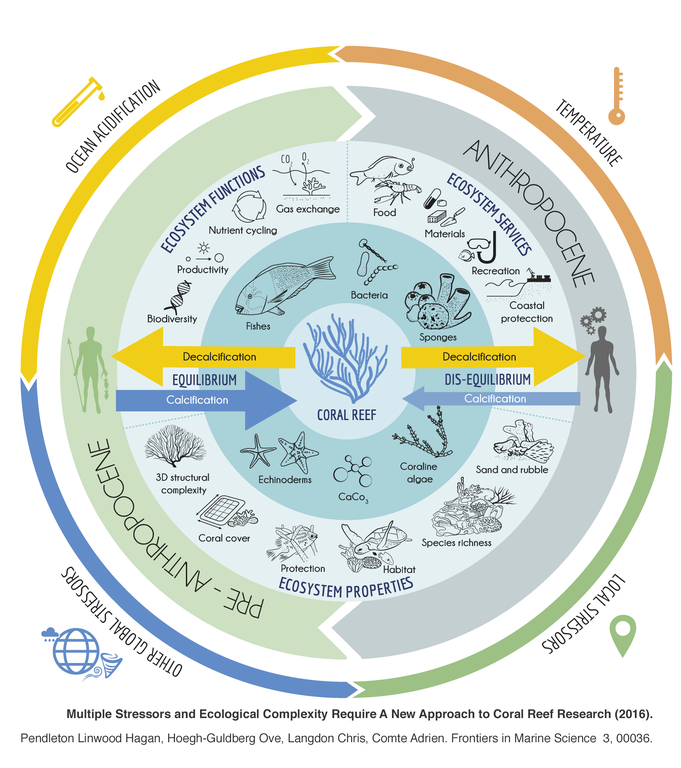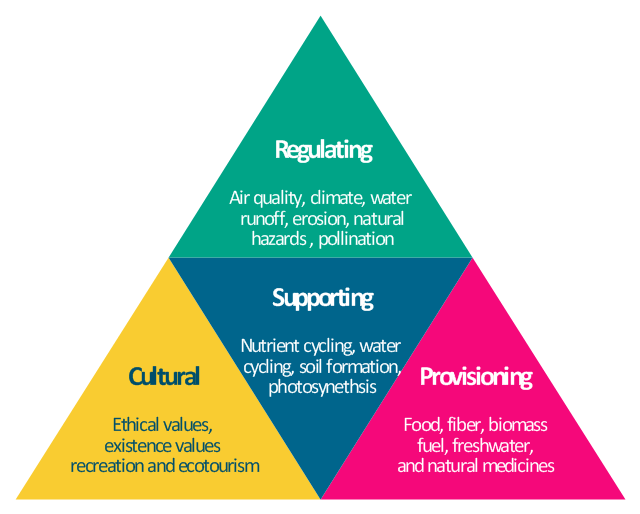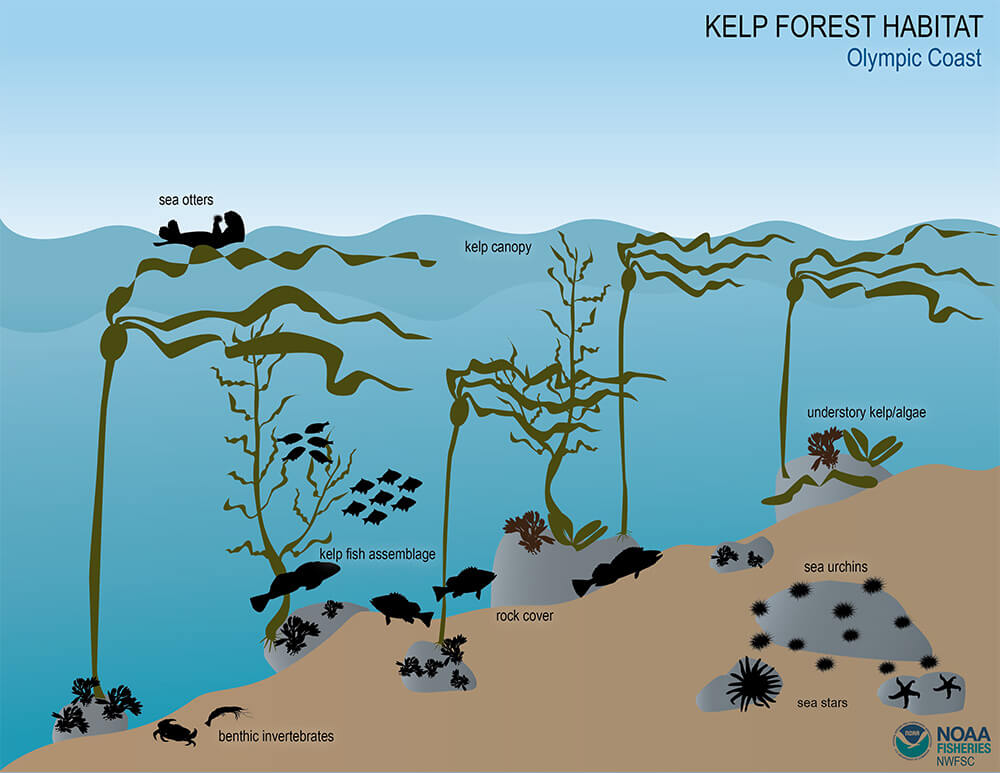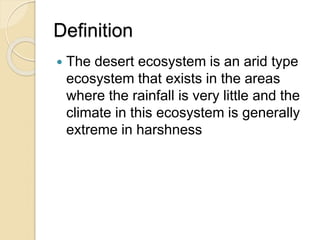Topic ecosystem services coral reefs: Discover the invaluable ecosystem services coral reefs provide, from biodiversity havens to economic powerhouses, these underwater ecosystems are vital for global health and prosperity.
Table of Content
- What are the ecosystem services provided by coral reefs?
- Importance of Coral Reefs to Biodiversity and Human Life
- Key Ecosystem Services Provided by Coral Reefs
- Role in Coastal Protection and Erosion Control
- Contribution to Food Security and Fisheries
- Economic Value through Tourism and Recreation
- YOUTUBE: Payments for Ecosystem Services Offered by Coral Reefs
- Biogeochemical Cycling and Water Quality Improvement
- Challenges Facing Coral Reefs: Climate Change and Human Impacts
- Conservation Strategies and the Importance of Coral Reefs Restoration
- Future Prospects and the Need for Sustainable Management
What are the ecosystem services provided by coral reefs?
Ecosystem services provided by coral reefs include:
- Protection of coastlines from storms and erosion
- Support for marine biodiversity and fisheries
- Provision of habitats for numerous species
- Support for tourism and recreation activities
- Contribution to the livelihoods and food security of coastal communities
- Support for research and education in marine sciences
- Regulation of nutrient cycling and water quality
READ MORE:
Importance of Coral Reefs to Biodiversity and Human Life
Coral reefs, often described as the rainforests of the sea, are some of the most biologically diverse and valuable ecosystems on our planet. They play a critical role in maintaining marine biodiversity, supporting thousands of species of fish, invertebrates, and other marine life. Coral reefs are not only crucial for marine organisms but also provide essential services to humans.
One of the key benefits of coral reefs is their contribution to marine biodiversity. They provide habitat, feeding, spawning, and nursery grounds for over a million aquatic species. This biodiversity is not only important for the environment but also supports fisheries, which are a vital source of food for billions of people worldwide.
Coral reefs also offer significant economic benefits through tourism and recreation. Activities such as scuba diving, snorkeling, and fishing attract millions of visitors each year, contributing billions of dollars to local economies. The aesthetic value of these vibrant ecosystems further underscores their importance to the tourism industry.
In addition to their ecological and economic roles, coral reefs provide critical coastal protection. They act as natural barriers, protecting shorelines from the impact of waves and storms, thus preventing erosion, property damage, and loss of life. This protective function is increasingly vital in the face of rising sea levels and extreme weather events caused by climate change.
The health and sustainability of coral reefs are also essential for biogeochemical cycling and water quality improvement. These ecosystems play a role in carbon and nitrogen cycling, helping to regulate the composition of the marine environment. Furthermore, coral reefs are a source of new medicines, offering potential treatments for a range of diseases and health conditions.
Despite their importance, coral reefs face significant threats from climate change, pollution, overfishing, and destructive fishing practices. The conservation and restoration of coral reefs are crucial for preserving their biodiversity, the services they provide to humanity, and their economic value to coastal communities.
Understanding and appreciating the importance of coral reefs to biodiversity and human life is the first step towards their protection and sustainable management. By safeguarding these precious ecosystems, we can ensure they continue to benefit future generations.

Key Ecosystem Services Provided by Coral Reefs
Coral reefs, the underwater equivalents of rainforests, offer a multitude of ecosystem services that are indispensable to marine life and human societies. These services are multifaceted, supporting not only the rich biodiversity of our oceans but also contributing significantly to human well-being and economic prosperity.
- Biodiversity Support: Coral reefs provide critical habitat, feeding, breeding, and nursery grounds for millions of marine species, including fish, invertebrates, mammals, and seaweed. This high level of biodiversity is crucial for the health and resilience of our oceans.
- Food Provision: They are a vital source of food for millions of people worldwide, particularly in coastal communities. Coral reefs support fisheries that are important for the subsistence, culture, and economy of these populations.
- Coastal Protection: The physical structure of coral reefs protects coastlines from the effects of wave action and tropical storms, helping to prevent erosion, property damage, and loss of life while maintaining beach width and quality.
- Economic Benefits: Through tourism, recreation, and fisheries, coral reefs generate billions of dollars annually. They attract tourists for diving, snorkeling, and fishing, which supports local economies in numerous countries.
- Scientific Research and Education: Coral reefs are living laboratories for scientists and educators, offering opportunities for research and learning about marine ecosystems, biodiversity, and the impacts of climate change.
- Medicinal Resources: Compounds derived from coral reef organisms are used in the development of new medicines for treating diseases such as cancer, arthritis, bacterial infections, and Alzheimer’s disease.
- Cultural Value: For many cultures, coral reefs hold significant cultural, spiritual, and aesthetic values. They are integral to the cultural heritage of many coastal and island communities.
- Carbon Sequestration: Coral reefs play a role in the global carbon cycle, although their capacity is less compared to terrestrial forests. They help in sequestering carbon dioxide, contributing to the mitigation of climate change impacts.
- Water Filtration: Coral reefs contribute to water quality by filtering out pollutants and sediments, which helps maintain the clarity and quality of coastal waters.
The preservation of coral reefs is thus not only a conservation priority but also a necessity for sustaining the ecological balance and human economies reliant on marine resources. The continued provision of these services hinges on our collective efforts to protect and restore coral reefs amid mounting threats from climate change, pollution, overfishing, and destructive practices.
Role in Coastal Protection and Erosion Control
Coral reefs play an essential role in coastal protection and erosion control, safeguarding shorelines from the destructive forces of the sea. Their structure acts as a natural barrier, absorbing wave energy and reducing the impact on coastal ecosystems and human settlements.
- Wave Energy Absorption: The complex structure of coral reefs dissipates wave energy, significantly reducing the power of waves before they reach the shore. This function is crucial during storms and hurricanes, where wave energy is at its highest.
- Shoreline Stabilization: By breaking the force of waves, coral reefs help to stabilize shorelines, preventing erosion and loss of land. This natural barrier protects beaches and coastal habitats, including mangroves and seagrass beds, which are critical for coastal biodiversity.
- Sediment Accumulation: Coral reefs promote the accumulation of sediment by reducing water velocity near the shore. This process helps to build up beaches and land areas, counteracting the effects of erosion.
- Protection of Coastal Infrastructure: The barrier provided by coral reefs is vital for the protection of coastal infrastructure, such as roads, buildings, and other structures. This protection is increasingly important in the face of sea-level rise and extreme weather events linked to climate change.
- Economic Savings: The coastal protection offered by coral reefs translates into significant economic savings in terms of reduced damage to property, lower costs for artificial coastal defenses, and less need for costly beach replenishment projects.
The protective services provided by coral reefs are invaluable, yet these ecosystems face threats from human activities and climate change. Preserving and restoring coral reefs is not only an environmental imperative but also a practical strategy for natural disaster risk reduction and sustainable coastal management.
Contribution to Food Security and Fisheries
Coral reefs are vital to global food security and support the livelihoods of hundreds of millions of people. They serve as crucial breeding and feeding grounds for a vast array of fish species, many of which are important to commercial and subsistence fisheries around the world. The productivity of these ecosystems directly influences the yield of fisheries, making coral reefs a key component in the food chain and economic stability of many coastal communities.
- Source of Protein: Coral reefs provide a significant source of protein for millions of people, particularly in developing countries where fish constitute a major part of the diet.
- Support for Fisheries: A large proportion of the world"s fisheries depend on the complex habitat provided by coral reefs for part of their life cycles, supporting billions of dollars in global fish trade.
- Sustainable Livelihoods: Fisheries associated with coral reefs offer employment and sustainable livelihoods to local communities, including fishing, processing, and market sales.
- Subsistence Fishing: For many small island nations, coral reefs are critical for subsistence fishing, providing the primary means of food production and a safety net in times of economic hardship.
- Biodiversity Hotspots: The biodiversity found within coral reef ecosystems is essential for the genetic diversity of marine species, including those important for future food security and medicinal resources.
Protecting and restoring coral reefs is not just an environmental imperative but also a necessity for maintaining and enhancing fish stocks that countless communities depend on for nutrition, economic development, and cultural heritage. Sustainable management practices and conservation efforts are critical to ensuring the long-term health and productivity of these invaluable ecosystems.
Economic Value through Tourism and Recreation
The economic value generated by coral reefs through tourism and recreation is immense, contributing significantly to the economies of many countries. These vibrant ecosystems attract millions of visitors each year, drawn by the beauty, biodiversity, and unique experiences that coral reefs offer.
- Scuba Diving and Snorkeling: Coral reefs are premier destinations for scuba diving and snorkeling, providing close encounters with a diverse array of marine life and stunning underwater landscapes.
- Recreational Fishing: They also serve as important sites for recreational fishing, supporting a wide range of species targeted by sport fishermen.
- Marine Tourism: Beyond fishing and diving, coral reefs facilitate a variety of marine tourism activities including boat tours, glass-bottom boat rides, and educational excursions that highlight the importance of marine conservation.
- Job Creation: Tourism related to coral reefs creates jobs in sectors such as hospitality, tour operations, conservation, and marine management, providing vital economic opportunities for local communities.
- Economic Revenue: The revenue generated from coral reef tourism supports local economies, with income derived from entrance fees, tourism services, and related commercial activities.
However, the sustainability of these economic benefits depends on the health and resilience of coral reef ecosystems. Overuse and environmental impacts associated with tourism can pose threats to reefs, highlighting the need for responsible tourism practices and effective management to ensure that coral reefs continue to provide economic value for future generations.

Payments for Ecosystem Services Offered by Coral Reefs
Conservation: \"Embark on an enlightening journey of conservation efforts that showcase the beauty of our planet and the incredible work being done to protect its wildlife and habitats. Witness the magic of nature at its best!\" Education: \"Immerse yourself in a world of knowledge and discovery with this captivating educational video. Expand your mind and learn new insights on fascinating subjects that will leave you inspired and eager to learn more.\"
Webinar: Coral Reef Value in Ecosystem Services at HT Odum Wetlands Center, University of FL
Original here: https://www.youtube.com/watch?v=dqizqhM-qlA.
Biogeochemical Cycling and Water Quality Improvement
Coral reefs play a crucial role in the biogeochemical cycles of the ocean, contributing to the regulation of the earth"s carbon and nitrogen cycles among others. Their complex ecosystems facilitate various processes that are essential for the health of the marine environment and, by extension, the planet.
- Carbon Sequestration: Coral reefs contribute to the carbon cycle by absorbing CO2 from the atmosphere. The process of photosynthesis by symbiotic algae living in coral tissues, and the subsequent formation of limestone (calcium carbonate) skeletons, effectively sequesters carbon.
- Nitrogen Fixation: Many coral reef ecosystems are involved in the nitrogen cycle through the process of nitrogen fixation, converting atmospheric nitrogen into forms usable by living organisms. This is crucial for the productivity of the marine ecosystem.
- Water Filtration: Coral reefs help improve water quality by filtering out pollutants and sediments, thereby maintaining the clarity and health of surrounding marine waters. This filtration process is vital for the survival of many marine species.
- Nutrient Cycling: The recycling of nutrients between coral, algae, and other organisms within the reef ecosystem ensures the availability of essential nutrients that are critical for marine life.
Through these natural processes, coral reefs not only support a vast array of marine life but also contribute to the stability and quality of the marine environment. Protecting coral reefs is therefore not only about conserving biodiversity but also about maintaining the natural processes that support life on earth.
Challenges Facing Coral Reefs: Climate Change and Human Impacts
Coral reefs, the marine world"s most biodiverse ecosystems, face significant threats from both climate change and human activities. These challenges have profound implications not only for the reefs themselves but also for the vast array of marine life they support and the human communities that depend on them.
- Climate change leads to ocean warming and acidification, causing coral bleaching and altering the delicate balance of marine ecosystems. These changes disrupt coral growth and reproduction, leading to diminished reef resilience and increased vulnerability to disease.
- Overfishing and destructive fishing practices remove key species that contribute to the health and stability of coral ecosystems, further destabilizing these environments.
- Pollution from agricultural runoff, wastewater, and plastic waste introduces toxins and nutrients that can lead to harmful algal blooms and degrade water quality, affecting coral health and the broader marine biodiversity.
- Physical destruction of reefs through coastal development, anchoring on reefs, and illegal coral mining undermines the structural integrity of reefs, leading to loss of habitat for marine life and reduced coastal protection.
To confront these challenges, it is crucial to implement comprehensive conservation strategies that include reducing greenhouse gas emissions, establishing protected marine areas, enforcing sustainable fishing practices, and restoring damaged reefs. Through concerted global and local efforts, we can mitigate the impacts on coral reefs and preserve their ecological and economic services for future generations.
Conservation Strategies and the Importance of Coral Reefs Restoration
The conservation and restoration of coral reefs are critical to sustaining their ecological and economic value. Given their sensitivity to climate change and human impacts, focused efforts are necessary to protect and revitalize these vital ecosystems.
- Active Restoration: This involves interventions such as coral planting, where fragments of corals are grown in nurseries and then reattached to the reef. It aims to accelerate recovery processes that would naturally take much longer.
- Protection of Existing Reefs: Establishing marine protected areas (MPAs) and enforcing regulations that limit overfishing, pollution, and physical damage to reefs are crucial for their protection.
- Local Community Engagement: Involving local communities in conservation efforts ensures the sustainability of these initiatives. Education on the importance of reefs and training in sustainable practices can empower communities to contribute positively to reef conservation.
- Research and Monitoring: Continuous scientific research and monitoring are essential to understand reef health, assess restoration efforts, and adapt strategies as needed. This includes studying the impacts of climate change and identifying resilient coral species that can withstand changing conditions.
- Policy and Global Action: National and international policies to reduce greenhouse gas emissions and address global warming are crucial. Coral reefs" fate is tightly linked to our ability to mitigate climate change.
Restoration efforts must be well-planned, well-funded, and long-term, focusing on enhancing coral reef resilience and employing adaptive management strategies. By following these principles, we can protect coral reefs and ensure they continue to provide essential services for marine life and human societies.
READ MORE:
Future Prospects and the Need for Sustainable Management
The future of coral reefs hinges on sustainable management practices that address both the immediate threats and long-term environmental changes. Implementing adaptive management strategies that can evolve with the changing climate and human impacts is crucial. These include:
- Enhancing global cooperation and partnerships to share knowledge, resources, and technologies for coral conservation.
- Investing in research to understand the impacts of climate change on coral ecosystems and identify resilient coral species and restoration techniques.
- Adopting ecosystem-based management approaches that consider the interconnectedness of coral reefs with other marine and terrestrial ecosystems.
- Promoting sustainable tourism and fishing practices to reduce direct human impacts on coral reefs.
- Increasing public awareness and education on the importance of coral reefs and the actions individuals can take to help protect them.
Sustainable management of coral reefs is not only a conservation imperative but also a necessity for ensuring the continued provision of the critical ecosystem services upon which billions of people worldwide depend.
Discover the vital role of coral reefs in supporting global biodiversity and human life. Embrace the journey towards sustainable management to ensure these underwater treasures thrive for generations. Join us in safeguarding these ecosystems and their invaluable services.












